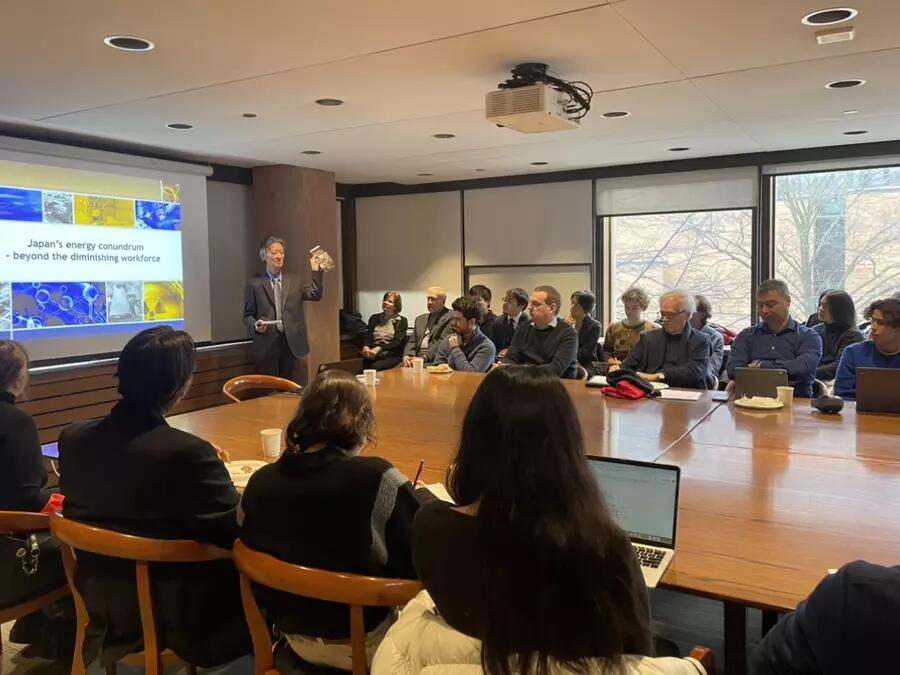
Event Report: Energy, Complexity and Geopolitics in Japan
On January 18th, 2024, the Centre for the Study of Global Japan hosted Professor Akira Tokuhiro, a Professor in the Faculty of Engineering and Applied Science at the Ontario Institute of Technology. Professor Tokuhiro delivered a presentation on the geopolitics of nuclear issues through the opportunities and risks that nuclear energy presents and its impact on Japan’s role as a G7 country.
Professor Tokuhiro began by discussing the geopolitics of global nuclear development while providing a more specific history of Japan to contextualize the Japanese perspective on nuclear energy. He emphasized the importance of the technology readiness level scale on the growth of nuclear technologies to rank different countries on their nuclear capabilities.
Professor Tokuhiro then transitioned to discussing several books he has been involved with, such as Japan’s Energy Conundrum. He noted the various routes to reach net-zero carbon emission goals in Ontario and Japan while comparing renewable energy source use between the two. In comparison to Ontario, Japan would have to increase their use of geothermal energy by 625% to match the rates of Ontario, and there would need to be significant effort on the part of Japan to increase reliance on nuclear and thermal energy to reach net-zero carbon emission goals.
Professor Tokuhiro then explored decision making through the lens of complexity, heuristics, and optimization. Pareto efficiency was noted as an example of how improvements in engineering design criteria relate to other factors like the complexity of optimization. Professor Tokuhiro continued by presenting the LENDIT (length, energy, number, distribution, information and time scales) heuristic framework as one way of analyzing complex issues and communication. The LENDIT framework was then further expanded through information scales, specifically the sub-heuristic categories of who, what, where, when, and how, as well as the Dynamic Integrated Climate-Economy model or DICE model which assesses decision making choices through the lens of climate change.
The LENDIT framework was then applied to Japan and its missile capabilities in the event of an attack by North Korea to demonstrate what factors are assessed. Professor Tokuhiro then provided some partial conclusions considering the complexities of geopolitics in Japan and the constantly shifting world as well as questioning the benefits of analysis frameworks such as LENDIT and heuristics.
Following Professor Tokuhiro’s talk, there was a lively question and answer period. There were several questions on Japan’s nuclear goals, capabilities, and governance, the effects of climate change and plans for net-zero carbon emissions, as well as imagining a prospective timeline for the creation of a successful nuclear fusion plant.
We would like to thank Professor Tokuhiro for his informative insights and the audience for an engaged Q&A session.

